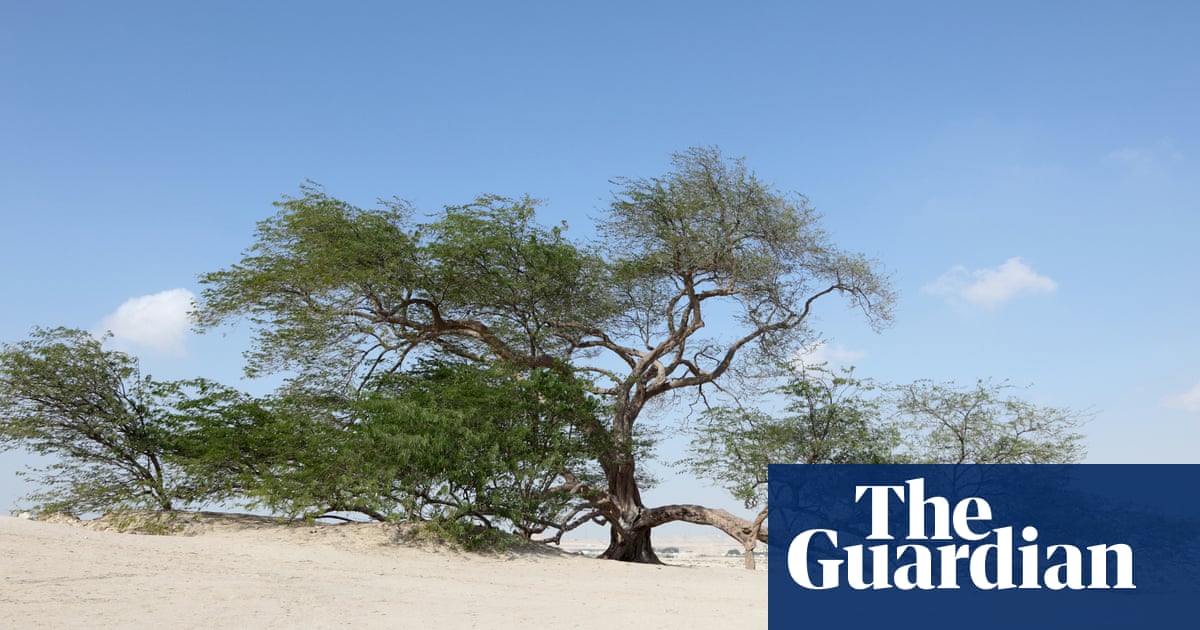
n recent years there has been a barrage of self-help books by former Navy Seals, applying their hard-fought techniques of leadership, discipline, problem-solving and survival to the lives of us everyday civilians.
Even though she served in the trenches of rock, Tana Douglas’s memoir, LOUD: A Life in Rock’n’Roll by the World’s First Female Roadie, could easily serve the same purpose – a kind of Gaffer Tape Your Life.
As a young woman barely out of boarding school in Toowoomba when she landed her first crew gigs, Douglas stuck steadfastly to the rule: “Never let them see a sign of weakness.” She even gave that one for free to a crying Sharon Osbourne, having a moment in a hotel lobby bathroom during Ozzy Osbourne’s 1980 Blizzard of Ozz tour.
“She seems to have taken it to heart,” Douglas laughs, of the woman who would become a notoriously hard-nosed manager. “Oops!”
When Guardian Australia speaks to Douglas, she’s at home in Los Angeles, her hair fashioned into long white dreadlocks. These days she’s pretty settled: a consultant for the production industry, sometimes working in artist development. It’s a far cry from her “feral” start as a teenage hitchhiker who felt unwanted by her family. Her preferred song of that era was the Animals’ We Gotta Get Out of This Place, and she needed to become a hustler and a grafter to do the same.
Douglas’s career started in 1973 when she was 15. A chance meeting with Philippe Petit at the Nimbin Aquarius festival turned into her first gig on his crew when he executed a guerrilla tightrope walk between the towers of Sydney Harbour Bridge. The first band Douglas crewed for came about by accident. Her friend had wanted to catch a lift home with members of Fox, but the roadies were being slow packing the gear, so Douglas jumped in – and did it so well that she was hired.
But it was as the backline roadie for AC/DC that she found her calling, with manager Michael Browning moving her into a sharehouse with the band. What’s striking about her memoir is just how young band and crews tended to be – often still teenagers. Douglas recalls Bon Scott fretting that he was too old for the game, being relatively ancient in his late 20s.
“We were playing pub gigs pretending to be adults, driving with or without licences,” she laughs. “Growing up didn’t really take place – it just was assumed that it would happen somewhere along the line.”
Before she was 21 she had worked with Carlos Santana, Neil Diamond, Status Quo and Iggy Pop – often on major international tours. She would go on to work with the Police, Elton John, the Runaways, Lenny Kravitz and more.
Life as a roadie was often silly and frequently dangerous. She played dare on a ferry with Iggy Pop’s crew (seeing who could hang over the railings for the longest); got pelted with live fish by fans in Helsinki; and there was the time members of Elton’s crew did lines in Windsor Castle.
Generally, she’d play down her gender, preferring to focus on fitting in, even if that meant working twice as hard as everyone else to be accepted as being capable.
“I very quickly became a crew chief and was in charge of people from different departments,” she recalls, “but you have to be more careful, because not every man wants to be told what to do by a woman. I found there were different ways of proposing a situation that would make it fly, like, ‘Why don’t we give this a go?’ instead of making orders.”
When Douglas got pregnant she kept it a secret … and then kept her son a secret, too. The options were to either find a menial-paying job as a single mum, or go back out on tour to support him – as men often did. She chose the latter and later wound up in a prolonged custody battle with her mother, with whom her son had stayed.
“You have to show the whole picture,” she says, of writing this painful segment of the book. “It’s a big part of the lifestyle.”
Mental health issues are a serious concern for road crew. Research from Entertainment Assist and Victoria University published in 2016 found that 19.1% of roadies surveyed had experienced suicide ideation in the previous 12 months – six times greater than the general population. Australia has music industry charity Support Act; the Roady for Roadies fundraising events; and CrewCare, which launched free training during the pandemic to upskill Victorian crew – around 500 participants – so that they can work more broadly across the music industry.
“Finally people are asking for help,” Douglas says. “It was seen as a sign of weakness. You could fall over drunk seven nights a week and no one would see that as a problem, but if you said, ‘I think I’ve got a bit of a mental health problem’, it was like you’d caught the Black Death.”
There’s another problem as roadies get older, she says: “They don’t adapt well to an environment outside of the music industry. They’ve lived in an insulated world with completely different rules.”
The pandemic shut down the touring industry, but Douglas wants to emphasise that if you’ve survived being on a crew, you can survive anything.
“Trust me, you can do a hundred other jobs,” she says. “Production people work really long hours in dangerous environments; they can think outside of the box, and think on their feet in extreme situations; they can handle different towns, different languages.”
As Douglas points out, the production side of the industry was one of the first to pivot: Illinois company Upstaging now mass-produces plexiglass protection products; Village Coach in Kansas provides coaches to transport medical professionals; and in Australia, CrewCare submitted a proposal to the chief medical officer, federal health minister and the Victorian and Queensland state governments to utilise the services of CrewCare members – using their rigs, lighting, roofs, buses and power cords – to build extensions to hospitals, if required.
“It made me feel really proud, actually,” Douglas says. That’s how production people think: give me a problem and I’ll figure out a way to make this work.”
• Loud: A Life in Rock’n’Roll by the World’s First Female Roadie by Tana Douglas is out through ABC Books on 3 February
• In Australia, the crisis support service Lifeline is 13 11 14. In the UK and Ireland, Samaritans can be contacted on 116 123 or email jo@samaritans.org or jo@samaritans.ie. In the US, the National Suicide Prevention Lifeline is at 800-273-8255 or chat for support. You can also text HOME to 741741 to connect with a crisis text line counsellor. Other international helplines can be found at www.befrienders.org












